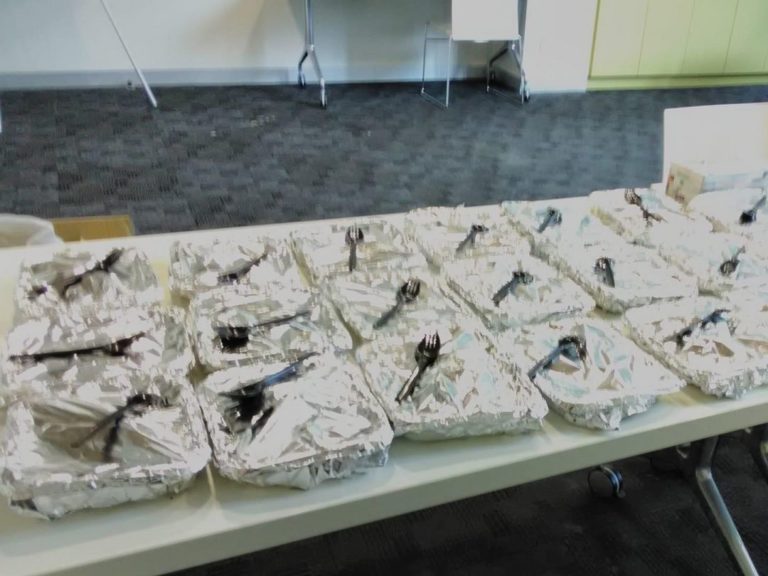There are estimated to be about 100,000 people who are homeless in Australia, and 15 to 20 per cent of them are sleeping rough. They are among the vulnerable during the coronavirus pandemic as homeless services, relying largely on face-to-face contact, are struggling to support those in need.
Many services have had to reduce contact hours and prioritise who will receive assistance.
Mental health clinician Helen Andrianakis continues assisting outreach programs, but has noticed the strain it has put on the support providers, especially when it comes to locating their clients.
“All our crisis centres, all our service centres that our clients go to have closed due to client contact. The biggest service centre on Bourke Street, The Salvation Army has closed, and a lot of clients we would find them there and given them their medication and catch up with them and give them a hot meal,” Ms Andrianakis told Neos Kosmos.
Preventative measures such as keeping good hygiene has also been met with difficulty as facilities are not as readily available for those who require them.
“Even though services and departments have put out portable showers, there’s only a certain amount of people that can use them…We can only take 25 people a day to the main support hospitals that allow us to bring them by, how am I going to select them?” Ms Andrianakis said.
READ MORE: Dozens of Greek Australian homeless people

State governments are providing some assistance and trialling preventative and medical measures.
The Victorian Government announced $8.8 million funding for four pop up facilities that with provide healthcare and supported accommodation for over 200 rough sleepers over a six month period.
Victorian Minister for Health Jenny Mikakos told Neos Kosmos, “New pop up facilities will give people sleeping rough somewhere safe to isolate and recover, and ensure they have the information, advice and support they need to look after themselves and those around them.”
READ MORE: 222 economists ask Australian government not to sacrifice public health for the sake of the economy
St Vincent’s Hospital Melbourne will be leading clinical responses to the inner Melbourne facilities operated by Anglicare Victoria, Brotherhood of Saint Laurence, Launch Housing, Sacred Heart Mission and VincentCare Victoria.
The South Australian Government has also placed over 200 people who are experiencing homelessness in emergency accommodation in motels across inner city metropolitan Adelaide.
Western Australia is taking a different approach by trialling a “Hotels with Heart” program with the Pan Pacific Hotel in Perth that provides accommodation to rough sleepers.
Currently 20 individuals are being housed for a 30-day trial.
National Suicide Prevention and Trauma Recovery Project coordinator Gerry Georgatos says the Federal Government’s response is “reprehensible” as there is no “minimum standard response” laid out for states and territories.
READ MORE: How Covid-19 breaks down solidarity with migrants
Many of those who are homeless have also been neglected and unable to gain support as they are migrants and asylum seekers on various visas.
“One in three of all homeless in this country are migrant born…those on special category visas and temporary protection visas and so forth are not eligible for things like Centrelink entitlements and in many cases aren’t supported by government responses, and who are not able to be supported in other ways,” Mr Georgatos said.
The response to finding temporary housing for our homeless community nationwide has also prompted the question of why initiatives like these could not have been put in place prior to the coronavirus restrictions.
“How is it that the 12th largest economy on the planet with a population of 25 million people…who have amongst the world’s highest median wages, we have incredible wealth in terms of resources, how is it that we have the third highest rate of homelessness in the OECD? How is it that not on the political will, with this resource wealth to accommodate all of our humanity?” says Mr Georgatos.
If you would like to donate supplies and hot meals you can contact Helen Andrianakis for more information on 0403 503 678









